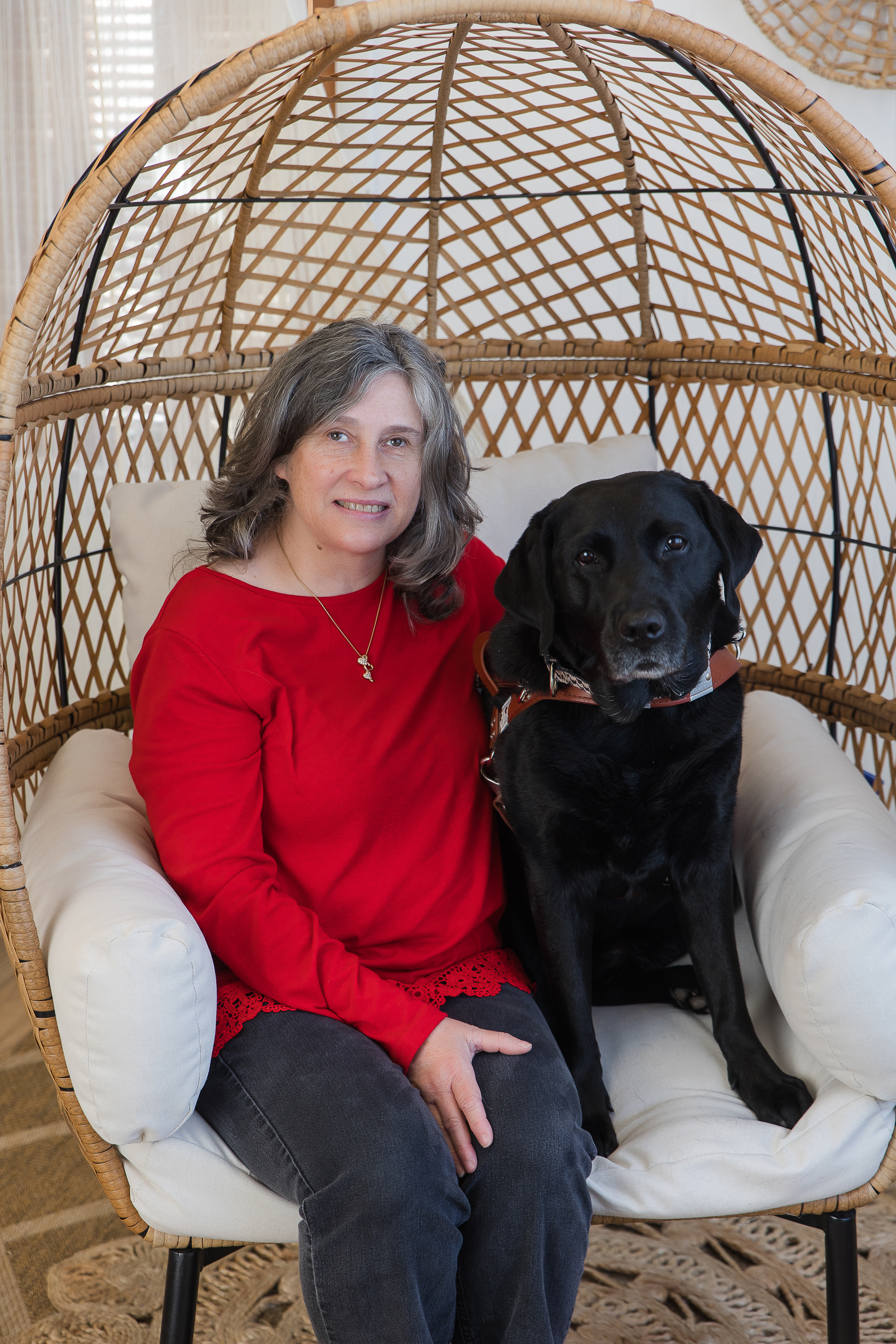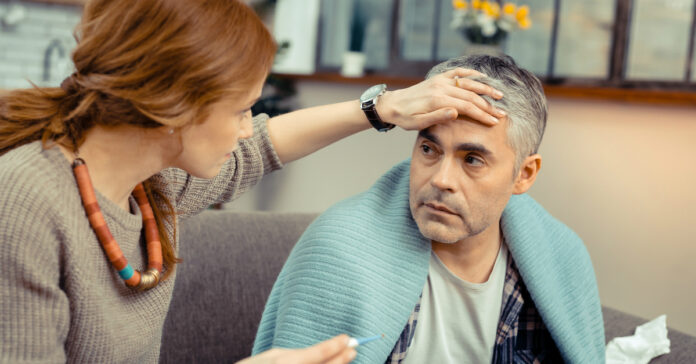[ad_1]
Hearing the intense reality about a bone marrow transplant wasn’t how I expected to spend my time just days after our honeymoon. This specialist was supposed to be the one who told us the other doctor had made a mistake. He was supposed to take blood and bone marrow samples and tell us the leukemia was no longer detectable, but things weren’t going according to my plan.
While discussing my husband’s cancer journey, one person asked, “You married him knowing he was sick?”
Isn’t that what the whole “in sickness and in health” thing is all about? I have no regrets, and I wouldn’t have changed anything, except I wish I had the faith I possess now. I never did trust God with my husband’s life like I trust God with everything now. God proved Himself faithful through that season, and my faith blossomed out of that long, difficult struggle.
Below, I would like to share five ways you can help your spouse battle cancer:
1. Walk by Faith
Don’t have unrealistic expectations, but do believe God does the impossible. As a young Christian, my mind wanted to cling to that, but I couldn’t get my heart on board. Each time we received a bad report, I went from believing to doubting. I panicked, asking the doctors and nurses questions. Why didn’t this work? What can we do? What if it doesn’t work? I searched their answers for the smallest thread of hope to hold onto, but many times I ended up in tears.
It didn’t help that we were newborn Christians. Our faith hadn’t grown yet. We clung to the promise in Romans 8:28 (NIV):
“And we know that in all things God works for the good of those who love him, who have been called according to his purpose.”
On my less optimistic days, I believed that even if my husband died, God would work it out for good. This is where I tell you not to do what I did but do as I say. If I could go back in time, I would open the Bible to Mark 11.
“Have faith in God,” Jesus answered. “Truly I tell you, if anyone says to this mountain, ‘Go, throw yourself into the sea,’ and does not doubt in their heart but believes that what they say will happen, it will be done for them. Therefore I tell you, whatever you ask for in prayer, believe that you have received it, and it will be yours.” (Mark 11:22-24 NIV)
Jesus tells us to have faith in God. What does that look like? It means we possess a firm confidence in God. We trust His will, His ability to heal, and His timing. That last one gets difficult. Faith goes beyond believing. Faith shows up in our walk, not just our talk (1 Cor. 5:17).
When we commit to trusting God to heal, doubt will threaten us nonstop. The enemy will whisper in our ears, “What if God doesn’t heal?”
That’s when we reply, “He will!” Strong faith can be contagious, and your spouse might have a better outlook just because you do.
2. Become a Prayer Warrior
Our faith needs to show up in our prayers. Look at the same verses above. Jesus didn’t tell us to only pray for God to move the mountain. He tells us to speak to the mountain ourselves. Speak to the cancer, even when your spouse isn’t around. When you’re together, speak to the cancer as you lay your hands on your spouse. I realize this might make you uncomfortable if this isn’t normal for you or your church. Throughout the Bible, people touched the ones they prayed for, usually, with their hands (Luke 4:40, Acts 28:8). Elijah laid on the widow’s dead son while asking God to revive him (1 Kings 17:21).
In addition to speaking to the cancer, pray to ask God to heal your spouse. In Mark 11:24, Jesus tells us to ask for what we need and believe we will receive it. This goes back to our faith, but Jesus emphasized a connection between believing and receiving. This isn’t “name it and claim it”. This comes straight from the lips of Jesus Christ. He said we must believe God will answer our prayers, and our prayers will be answered.
Does God always answer our prayers when we believe? What if I lack the faith necessary to believe? God’s ways and thoughts are higher than ours (Is. 55:8). I wish I could give you these answers, but once again, we must trust God. We trust Him to do the right thing, His perfect will, but we still believe He can do immeasurably more than all we ask or imagine (Eph. 3:20).
3. Bear One Another’s Burdens
When you have a medical crisis, you also have a financial crisis. I cannot count the bills our health insurance didn’t cover. Rather than burdening my husband with more stress, which interferes with healing, I handled this burden without his knowledge.
I called the insurance company, and I stayed on the phone as they switched me from one department to another. Once they agreed to resubmit the bill, I prayed it would be paid. In most cases, insurance did pay it.
Another problem I encountered revolved around certain tests and procedures. Insurance covered them at first. Then they denied the service the second, third, and fourth times. Each time, I made the phone call, and they eventually covered it.
I also intercepted most of the phone calls from the medical professionals concerning testing. Anything you can do to lighten your spouse’s load is beneficial.
4. Have a Support System
God blessed me with a friend in our church who had lost his brother to the exact type of leukemia that my husband, Timmy, had. He gave me valuable advice that I still pass on to others today.
When you bear the heavy load so your spouse can concentrate on healing, you need a support system. You’re dealing with major stress, and you need someone to talk to. You need the person who lets you cry on their shoulder as you try to avoid those breakdowns around your spouse. Sometimes, a good cry helps us feel better as we unload on a friend.
5. Look Outside the Box
My husband’s first oncologist and the specialist he sent him to painted a dim picture for us. We had no peace about the bone marrow transplant, which came with risks. We didn’t look for a second opinion because we thought the specialist was the second opinion. Thankfully, God led us to a different medical center, three hours from home.
The new doctor wanted to put Timmy on a medication that the first doctor never told us about before proceeding to a bone marrow transplant. Duke Medical Center had more modern techniques and equipment than the previous specialist.
Timmy’s local oncologist had to monitor his progress and dosage due to the long distance between us in Virginia and Duke in North Carolina.
When we returned to Duke, we received devastating news. Timmy’s local oncologist had failed to increase the dosage when he should have.
As Timmy sat on the exam table, the doctor entered the room and told us the bad news. “You have only twelve to eighteen months to live without the transplant.”
Getting another opinion never occurred to us, but God had different plans.
Once again, God opened a door to another facility, Johns Hopkins in Baltimore, Maryland. The doctor at Duke and the one from Johns Hopkins knew each other. Within weeks, they accepted Timmy onto a clinical trial for an experimental drug, and he began improving.
I share our story with you because if we had never traveled to Duke and then to Johns Hopkins, my husband would not be alive today. Even if you feel uncertain about clinical trials and experimental drugs, search the internet to learn about them. In Timmy’s case, this was the third phase of the trial, and people had already gone into remission. At least get another opinion, and don’t be afraid to travel to reach better doctors.
I wish I could sit with you and hold your hand and dry your tears. I certainly will pray for you. I hope we will meet in heaven one day, if not on earth, and you will tell me how you believed for a miracle, prayed like a warrior, and found something helpful from our story. Hope still exists as long as Jesus is on the throne, and He will never leave you or forsake you (Heb. 13:5).
Photo Credit: ©GettyImages/Zinkevych

[ad_2]
www.ibelieve.com







